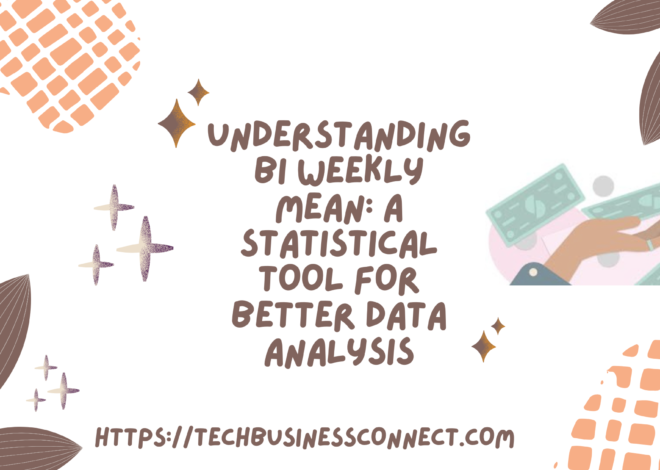
Gardeners Leave: Best Understanding the Concept, Purpose, and Implications 2024
Introduction
Gardeners leave in the corporate world, employment agreements often contain various provisions to protect both employers and employees. One of these provisions is “gardeners leave” or “garden leave,” a term primarily used in the United Kingdom, Australia, and other Commonwealth countries. In essence, gardeners leave is a period when an employee, typically a senior manager or key personnel, is instructed to stay away from work during their notice period after resigning or being terminated. However, during this time, they remain on the company’s payroll and are usually bound by their contractual obligations.
Gardeners leave has become increasingly common in industries where proprietary information, trade secrets, or client relationships are at stake. It serves as a means to protect the employer’s business interests while also offering a transitional phase for employees. This article will explore the concept of gardeners’ leave in depth, its origins, purpose, implications for both employees and employers, and its legal standing in different jurisdictions.
What is Gardeners Leave?
Gardeners’ leave refers to a period where an employee, particularly those in strategic or sensitive positions, is asked to refrain from working or entering the workplace during their notice period. The term derives from the notion that, during this time, the employee may tend to their garden or personal affairs, although they are still legally employed and paid by their employer.
Unlike immediate termination, where an employee leaves the company with no further obligations or benefits, gardeners’ leave allows an employee to receive their full salary and benefits until their contract ends, without actively participating in the business’s day-to-day operations. This leave is often employed to prevent the departing employee from accessing sensitive information, influencing other employees, or directly competing with their former employer while still being on the payroll.
Key Characteristics of Gardeners Leave:
- Continued Salary and Benefits: Employees on gardeners’ leave typically continue to receive their regular salary and benefits until the end of the notice period. However, they are prohibited from taking on work for another employer during this time.
- Access Restrictions: The employee is usually restricted from entering the workplace, accessing confidential information, communicating with clients, or performing any active duties related to their role.
- Contractual Boundaries: The employee remains bound by any restrictive covenants in their contract, such as non-compete clauses, confidentiality agreements, or non-solicitation clauses.
The Purpose of Gardeners Leave
The primary purpose of gardeners leave is to protect the business interests of the employer, particularly when the departing employee holds a position with access to sensitive or proprietary information. In industries such as finance, law, and technology, key personnel often possess valuable information about clients, company strategies, or intellectual property. By placing an employee on gardeners leave, the company reduces the risk of this information being used by competitors or misused before the official end of employment.
Employer’s Perspective:
- Protection of Confidential Information: Employees in senior or strategic roles often have access to sensitive data, including financial information, client lists, product development plans, or intellectual property. Gardeners’ leave ensures that these employees cannot use this information for personal gain or pass it on to a competitor during their notice period.
- Prevention of Poaching or Solicitation: A departing employee may attempt to poach clients or staff for their new role or company. Gardeners leave serves as a preventive measure to ensure that the employee has no opportunity to solicit or influence other employees or clients during their transition.
- Smooth Transition for the Organization: By removing a departing employee from active duties but keeping them on the payroll, the company can manage a smoother transition. This time allows the employer to reassign responsibilities, bring in a replacement, and ensure that there is no disruption to business operations.
Employee’s Perspective:
- Preparation for New Opportunities: Gardeners leave offers employees time to prepare for new opportunities, whether it be starting a new job or taking on a personal venture. However, they must remain mindful of their contractual obligations, such as non-compete clauses.
- Continued Financial Stability: While they may not be actively working, employees on gardeners’ leave continue to receive their salary and benefits, providing financial stability during the transition.
- Time for Reflection and Rest: For many employees, especially those in high-stress or demanding roles, gardeners’ leave can provide a rare opportunity for rest and reflection before embarking on their next career move.
Legal Considerations of Gardeners Leave
The enforceability of gardeners’ leave provisions can vary by jurisdiction. In the UK and other Commonwealth countries, it is a common practice and is generally enforceable as long as the employee continues to receive their full salary and benefits. In the United States, while similar provisions exist, they are less common and more dependent on state law and the specific terms of the employment contract.
United Kingdom:
In the UK, gardeners’ leave is widely recognized and enforceable under employment law, provided the employer honors their financial obligations during the notice period. Employers typically include a clause in the employment contract specifying their right to place the employee on gardeners’ leave.
UK courts generally uphold gardeners leave provisions if they serve a legitimate business interest, such as protecting confidential information or preventing poaching. However, if the employer fails to pay the employee during this period or places them on an unreasonably long leave, the court may deem the provision unenforceable.
United States:
In the US, gardeners’ leave is less common and typically falls under broader non-compete or non-solicitation agreements. The enforceability of such provisions depends heavily on state law. States like California, for instance, have strict limitations on non-compete clauses, making gardeners’ leave less applicable.
Other states may allow the practice, provided the employer compensates the employee during the leave period and the provision is reasonable in scope and duration.
Implications for Employees and Employers
Gardeners leave can have both positive and negative implications for employees and employers. Understanding these implications can help both parties navigate the process effectively.
For Employers:
- Positive Implications:
- Protects sensitive business information.
- Allows for a smoother transition and reassignment of responsibilities.
- Prevents poaching and solicitation of clients or staff.
- Negative Implications:
- The employer continues to pay the employee’s salary and benefits without receiving any work in return.
- May create tension if the employee views gardeners’ leave as punitive rather than protective.
For Employees:
- Positive Implications:
- Provides a paid transition period, offering financial security while searching for new opportunities.
- Offers time to rest, reflect, or prepare for the next career move.
- Negative Implications:
- Restricts the employee from working elsewhere or engaging with clients during the notice period.
- May prolong the period before they can start a new role if non-compete clauses are enforced.
Conclusion
Gardeners leave is a strategic tool that employers can use to protect their business interests while providing employees with a transitional phase before moving on to new opportunities. By temporarily removing the employee from the workplace while continuing to pay them, employers minimize the risk of sensitive information being misused or business relationships being disrupted.
From an employee’s perspective, gardeners leave offers financial security and a chance to regroup before embarking on a new venture, but it comes with limitations in terms of what they can do during the leave period.
As with any contractual provision, the enforceability and fairness of gardeners’ leave depend on the jurisdiction and specific terms of the employment contract. Both employers and employees should seek legal advice to ensure that the terms are reasonable, enforceable, and beneficial for both parties.


